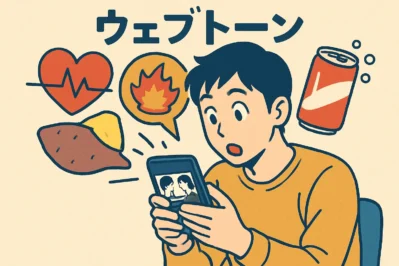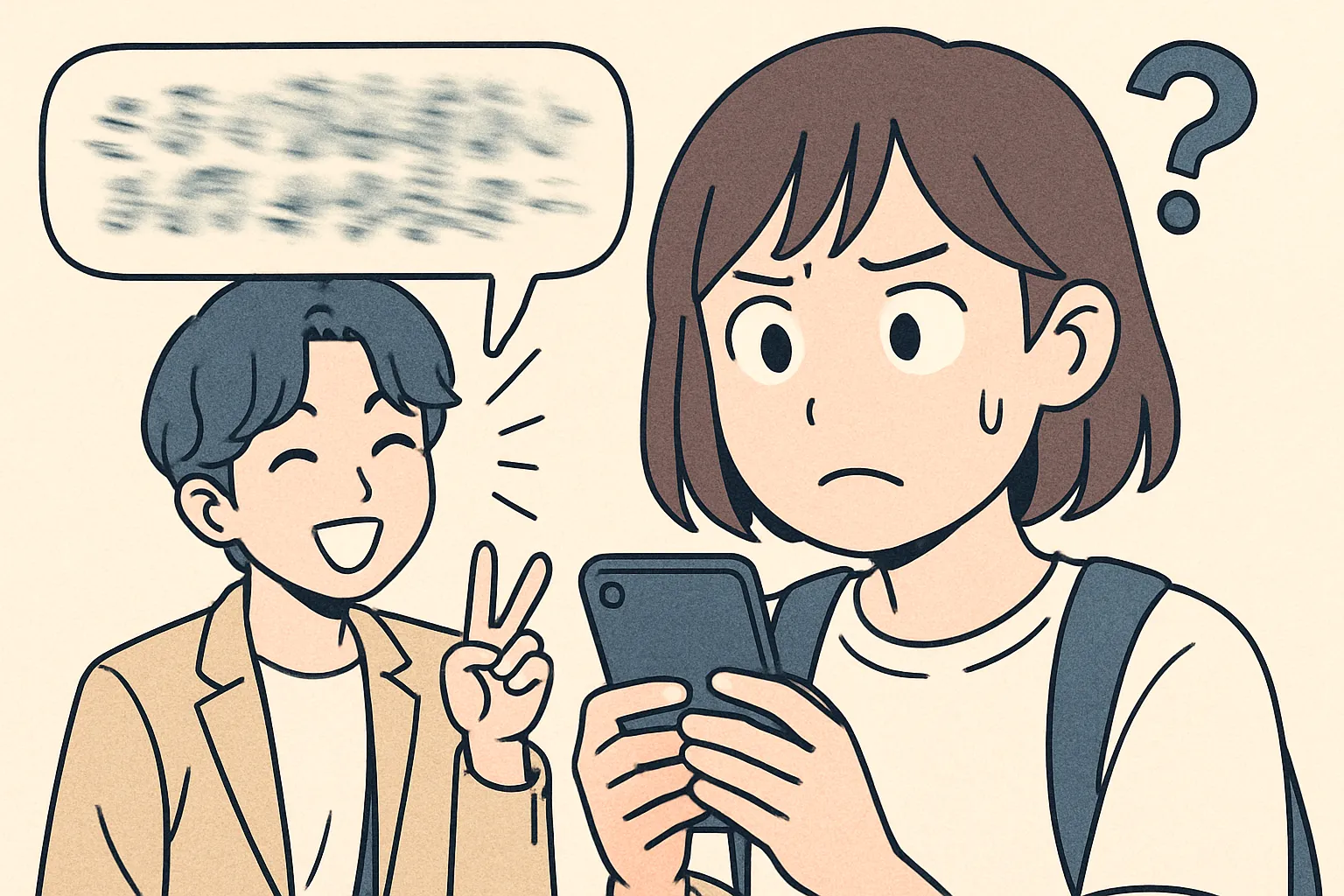From ‘Dugeun’ to ‘Smash!’: A Translator’s Guide to Webtoon Slang & SFX
Hello! This is [Daily Hangul], here to upgrade your Korean skills to the next level!
Today, we’re diving into a fascinating and challenging world: the translation of Korean webtoons and manhwa. If you’re a fan of the Hallyu wave, you know that webtoons are a massive global phenomenon. Nowadays in Korea, webtoons are not just comics; they are the source material for blockbuster K-dramas like All of Us Are Dead and hit movies. But how do you translate the unique sounds, feelings, and cultural slang that make them so vibrant? This lesson will equip you with the nuanced understanding needed to not just read, but truly interpret the language of webtoons.
Core Expressions for the Aspiring Translator
Here are some essential concepts that go beyond literal meaning and into the heart of webtoon storytelling.
1. 의태어/의성어 (Uitae-eo/Uiseong-eo): Mimetic/Onomatopoeic Words
- Korean Expression: 두근두근 (dugeun-dugeun)
- Pronunciation [Romanized]: Dugeun-dugeun
- English Meaning: Thump-thump; pit-a-pat (the sound of a heart beating)
- Detailed Explanation: This is one of the most common and versatile mimetic words. While it literally represents a heartbeat, its contextual meaning is vast. It can signify romantic excitement, sheer terror, or nervous anticipation. A direct translation of “thump-thump” might not always capture the specific emotion. As a translator, you must read the character’s expression and the scene’s mood. Is it a sweet “ba-dump, ba-dump” of a first crush, or a frantic “pound, pound” of fear? The nuance is everything.
- 💡 Pronunciation Tip:
The repetition of ‘두근 (dugeun)’ creates a rhythmic, pulsating sound that mimics a real heartbeat. Notice that the ‘ㄱ (g)’ sound in the middle of the word is softer than at the beginning. It’s not a hard ‘k’ sound, but a gentle ‘g’, which makes the word flow smoothly.
2. 액션 의성어 (Aeksyeon Uiseong-eo): Action Sound Effects
- Korean Expression: 콰광! (Kwagwang!)
- Pronunciation [Romanized]: Kwagwang!
- English Meaning: KABOOM! CRASH! BANG!
- Detailed Explanation: This is a powerful, explosive sound. It’s used for crashes, explosions, or massive impacts. The challenge here is not just translating the meaning but also the intensity. The way the word is drawn in the panel—its size, font, and color—all contribute to its impact. Translators often work with artists (or “redrawers”) to replace the Korean text with an English equivalent that matches the visual energy. “Bang” might be too weak; “KABOOM!” might fit better for a huge explosion.
- 💡 Pronunciation Tip:
The ‘콰 (kwa)’ sound is key. The initial ‘ㅋ (k)’ is an aspirated consonant, meaning you should feel a strong puff of air when you say it. This, combined with the wide-open ‘ㅘ (wa)’ vowel, creates a sound that feels big and explosive, perfectly matching its meaning.
3. 상황 묘사 신조어 (Sanghwang Myosa Sinjo-eo): Situational Neologisms (Slang)
- Korean Expression: 고구마 (goguma) / 사이다 (saida)
- Pronunciation [Romanized]: Goguma / Saida
- English Meaning: A frustrating, stifling situation / A refreshing, satisfying resolution.
- Detailed Explanation: This pair is a brilliant example of untranslatable cultural slang. 고구마 (goguma), or sweet potato, metaphorically describes the stuffy, frustrating feeling you get when a story’s plot is stuck, characters make foolish decisions, or villains keep winning. 사이다 (saida), like the clear, fizzy drink (cider), represents the moment of catharsis—when the hero finally wins, a misunderstanding is cleared up, and you get that refreshing “Aha!” feeling of relief. Translating these literally (“It’s sweet potato!”) makes no sense. You must convey the feeling: “This is so frustrating!” or “Finally, such a satisfying moment!”
- 💡 Pronunciation Tip:
While the pronunciation is straightforward, the cultural weight is not. When Koreans say a situation is ‘고구마’, they often say it with a sigh, mimicking the slight difficulty of swallowing a dry sweet potato. Conversely, ‘사이다’ is often exclaimed with a crisp, sharp tone, like opening a can of soda: “아, 사이다! (Ah, saida!)”.
Example Dialogue
Let’s see how two webtoon fans might use these terms.
A: “Are you keeping up with the latest chapters of The Lone Awakener? The past month has been such 고구마 (goguma).”
(최신 웹툰 고독한 각성자 보고 있어? 지난 한 달은 정말 고구마였어.)
B: “Tell me about it! But today’s chapter was pure 사이다 (saida). When he finally smashed the villain’s gate… 콰광 (Kwagwang!)! It was epic.”
(내 말이! 근데 오늘 편은 완전 사이다였어. 주인공이 드디어 악당의 게이트를 부쉈을 때… 콰광! 진짜 대박이었어.)
A: “Totally! And the final panel where he saw his long-lost partner? My heart was going 두근두근 (dugeun-dugeun). I can’t wait for next week.”
(완전! 그리고 마지막에 잃어버렸던 파트너를 봤을 때? 심장이 완전 두근두근했어. 다음 주가 너무 기대돼.)
Culture Tip & Trend Deep Dive: The Translator’s Dilemma
When translating terms like ‘고구마 (goguma)’, professional translators face a crucial choice: localization vs. direct translation with a note.
- Localization: Change ‘goguma’ to a phrase like “so frustrating.” This is smooth and immediately understandable to a global audience but loses the unique cultural flavor. Official platforms like Webtoon often prefer this method for maximum accessibility.
- Direct Translation + T/N: Keep the word ‘goguma’ and add a translator’s note (T/N: “Goguma” literally means sweet potato, but is used to describe a frustrating situation). This method, often seen in fan translations (scanlations), preserves the original culture and teaches the reader something new. It builds a community of “insiders” who understand the original Korean context.
The trend is shifting. As global audiences become more familiar with Korean culture, some official translations are starting to retain culturally specific terms. Recognizing when to localize and when to educate is a key skill for any advanced learner or aspiring translator.
Wrap-up & Practice
Today, we saw that webtoon translation is an art that requires a deep understanding of sound, emotion, and culture. You’re not just swapping words; you’re rebuilding a world for a new audience.
Now, it’s your turn to be the translator!
- Scenario: A character in a romance webtoon is about to confess their feelings. The panel shows a close-up of their blushing face with the word 두근두근 (dugeun-dugeun) next to it. How would you translate this sound effect, and why did you choose that specific English word (e.g., ba-dump, thump-thump, pound, flutter)?
-
Can you think of a situation in a movie or book from your own culture that you would describe as 고구마 (goguma)?
Leave your answers in the comments below using the expressions we learned today! We’d love to see your translations.






